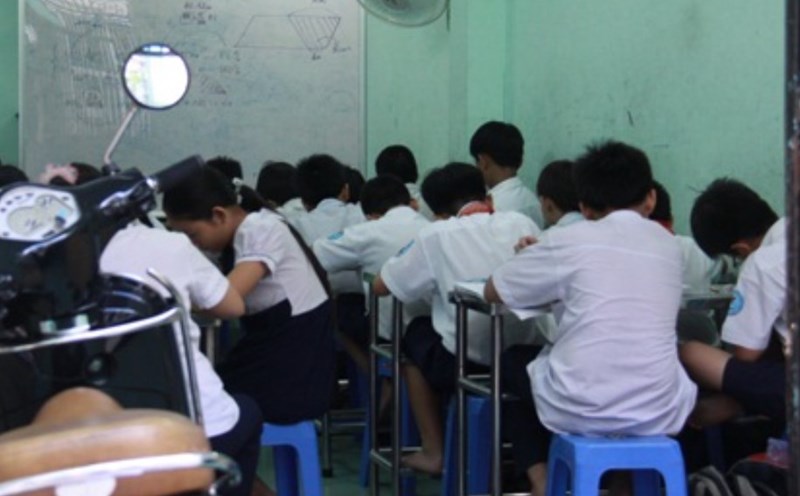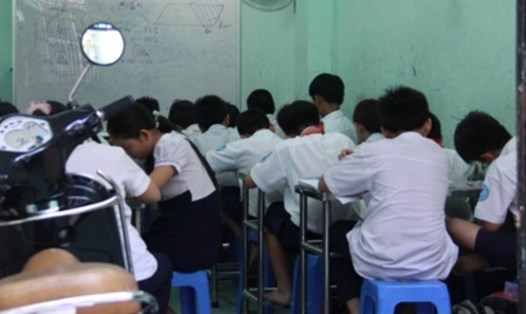According to the newly issued Circular, cases where extra teaching and extra teaching are not allowed include: No extra teaching for primary school students, except for the following cases: Arts, sports, and life skills training.
Teachers who are teaching at schools are not allowed to teach extra classes outside of school for money from students that the teacher is assigned to teach by the school according to the school's educational plan.
Teachers in public schools are not allowed to participate in the management and operation of extra-curricular teaching but can participate in extra-curricular teaching.
Regarding the supervision of extra teaching and learning, the Circular stipulates:
Supervision is not only the responsibility of the Education sector or local authorities. Currently, in the world, there are a number of countries and territories that allow extra teaching and learning.
For example, China allows tutoring in schools but prohibits it outside of schools. China is drafting regulations on tutoring outside of schools. Thailand still has public schools that organize tutoring. Korea and Japan allow tutoring outside of schools. Taiwan (China) allows tutoring both inside and outside of schools. Singapore organizes tutoring in public schools for free... but it also requires supervision by the entire population, by students and parents based on the regulations that have been issued.
Regulations on extra teaching and learning in schools
Regarding extra teaching and learning in schools, the new Circular limits the subjects who are allowed to take extra classes in schools to 3 subjects, which are the responsibility of the school and do not collect money from students: (i) Students whose study results for the subject at the end of the previous semester are not satisfactory;
(ii) Students selected by the school to nurture excellent students;
(iii) Final year students voluntarily register to review for entrance exams and graduation exams according to the school's educational plan.
Regarding the teaching subjects: For the above subjects of extra-curricular students, the new Circular only stipulates that teachers at schools are not allowed to teach extra-curricular students outside of school and collect fees from students that the teacher is assigned to teach by the school according to the school's educational plan to limit the teachers from taking their students out to teach extra-curricular students.
Regarding the cost of organizing extra teaching and learning: These 3 subjects are the responsibility of the school to train and are included in the content of the school's educational plan to meet the school's educational goals, ensuring the rights of all students to meet the requirements of the program and not collect tuition fees from students.
In addition, the Circular stipulates that the arrangement of classes, assignment of teachers, arrangement of timetables and organization of extra teaching and learning must ensure the following requirements: Extra classes are arranged by subject for each grade; each class has no more than 45 students according to the regulations of the General School Charter; in one week, each extra subject has no more than 2 periods (to ensure that it does not exceed the average number of periods of subjects according to the regulations of the general education program); extra teaching hours are not arranged alternately with the timetable for implementing the main curriculum (to limit the negative effects of forcing students to take extra classes); extra teaching content is not taught in advance compared to the distribution of the subject curriculum in the school's education plan.
According to the Ministry of Education and Training, the above regulations aim to ensure increased responsibility of schools in fully implementing the requirements set forth in the general education program.
Schools have the opportunity to devote unused time and space to organizing educational activities, life skills training, cultural, artistic, physical education and sports activities, etc. to comprehensively develop students; at the same time, limit the behavior of "forcing students to take extra classes" that causes public outrage.











